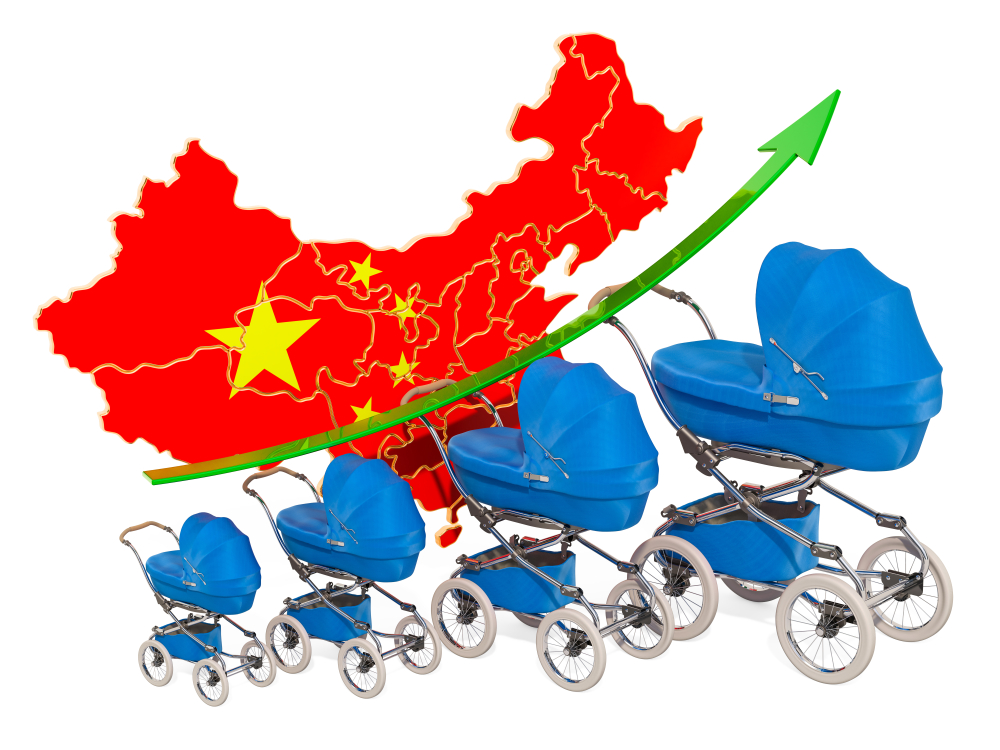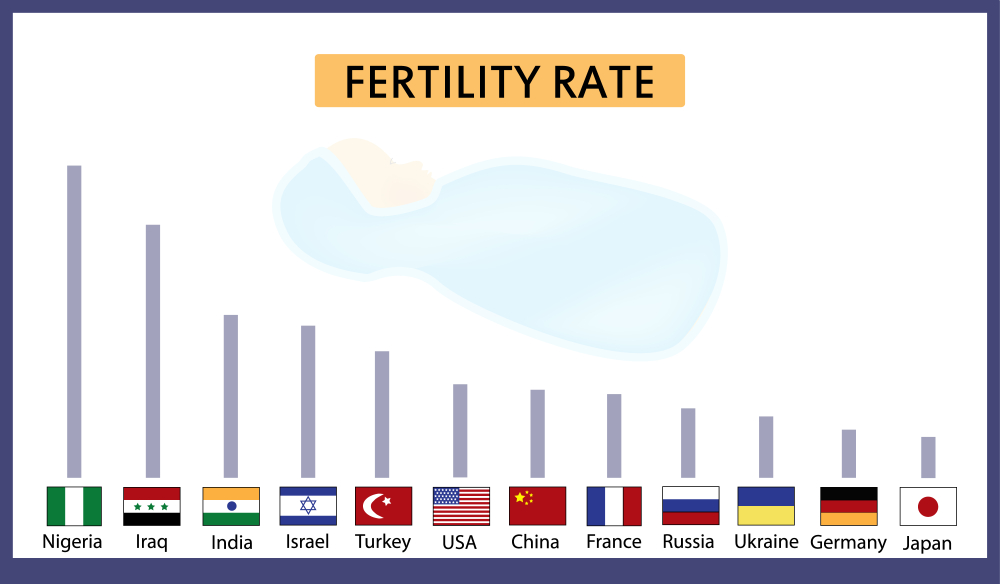Miss Zomboko
JF-Expert Member
- May 18, 2014
- 4,498
- 9,279
Baada ya Kujua shida ambayo ingeletwa katika siku zijazo kutokana na ongezeko la watu, kati ya 1955-1957 Kiongozi Mkuu wa China, Mao Zedong baada ya kujadili suala hilo na kushawishiwa na Mchumi maarufu na Rais wa Chuo cha Peking aliamua kuanzisha sera ya kitaifa ya kupanga uzazi
Mnamo mwaka 1962, Tume ya kupanga uzazi ilianzishwa nchini humo lakini harakati hii ilikwamishwa kwasababu ya Mapinduzi ya Kitamaduni yaliyokuwepo nchini China wakati huo. Mnamo mwaka 1966, kiwango cha uzazi kwa wastani kiliongezeka hadi 6.4
Kufikia mwaka 1970, idadi ya watu walikuwa wamefikia milioni 800 jambo ambalo liliathiri sana uchumi na kudhoofisha viwango vya maisha vya Wananchi na kukwamisha lengo la nchihiyo kuwa na nguvu kubwa kiuchumi
-
Ili kukabiliana na hali hii Serikali ilianza Tume madhubuti ya kusimamia upangaji wa uzazi mnamo mwaka 1971 na matokeo yake, kupelekea sera ya kuzaa mtoto mmoja kuanzishwa mnamo 1980 na kupelekea idadi ya watu kupungua hadi kufikia milioni 250
Watu wengi waliipinga Sera hii huku wengine wakisema ilikuwa ikiwanyanyasa wanawake kwa kuwalazimisha kutumia njia za uzazi wa mpango au kulazimishwa kutoa mimba pale wanapopata ujauzito na pia ilisababisha watoto wengi kukosa ndugu wa kuzaliwa kutoka familia moja
Mnamo Januari 2016 China iliamua kubadilisha Sera hiyo ya kuwa na mtoto mmoja na kuruhusu wanandoa kuzaa watoto wawili
==============
History of the Policy –
Overpopulation is a threat to a country’s natural resources and the sustainability of a large population is a challenging and difficult task for any government. The visionary leaders of China saw this coming long back and started promoting the use of contraceptives way back in 1953.
Aware of the problems that overpopulation will create in the coming future, in between 1955-1957 the supreme leader of China, Mao Zedong after discussing the issue and being convinced by one of the most famous Chinese economists and the then president of the famous Peking University decided to set-up a national family planning commission.
But due to the Great Leap Forward Movement in the year 1958, the Supreme leader reverted to his policy of “more people means more power” and the family planning commission was dissolved and the focus went towards rapid transformation of the country from an agriculture-based economy to a socialist society through industrialization and collective farming.
In 1962, the family planning commission was established nation-wide but this movement was halted due to the Cultural Revolution in China then. In the year 1966, the average fertility rate in China went up to 6.4!!
By the early 1970s, the population of China had reached 800 million which affected the economy the most and this brought down and deteriorated the living standards of the Chinese due to overpopulation and thereby becoming a hindrance to the country’s goal of becoming an economic superpower. To counter this the government began a serious family planning commission in 1971. Since exponential population growth drew the attention of the authorities towards itself, as a result, the one-child policy was introduced in 1980.

Increasing fertility rate in China (Photo Credit: AlexLMX/ Shutterstock)
Outcomes of the policy –
There was a mixed response towards the one-child policy. Some think that this decision was taken in a rush and was completely political and was based on a very little demographic understanding. To prove this a team of scholars from various leading institutions of China (for the study of population growth) was formed in the year 2001. According to the research of the team if the policy was not discontinued it would have serious aftereffects as it was harming the demographics of the country in the worst possible manner (as already the demographics of the country had become worse).
People also say that the policy was discriminatory against women as they were forced for sterilization and abortions which is an epitome of gender discrimination. China has one of the highest suicide rates among girls of reproductive age. Some part of the Chinese population even believes that the step to force the one-child policy had generated discontent and anxiety amongst the families with multiple children (before the policy) and such discontent could lead to negative consequences. According to research, 90% of the children living in urban areas in China do not have siblings and it’s the same for 60% of the children living in rural areas.
But looking only at the negative aspects of anything is not fair. The one-child policy also had some positive aspects like the population growth was reduced up to 250 million and hence the reduction in fertility rates which have eased at least some of the pressure on communities, state, women and most importantly the environment to some extent.

Fertility Rate Decreased in China from 6.4 in 1966 to 1.7 in 2017 (Photo Credit: Timonina/ Shutterstock)
Conclusion –
China’s one-child policy was very effective in controlling the population explode but always remained under a mixed view. Around 400 million births were prevented in the past three and a half decades, but with this, the working-age population had started shrinking, the birth rate and fertility rate had decreased. And due to the increase in the old age population which lead to a shrinking workforce, China decided to revoke the one-child policy on 1st January 2016, allowing the Chinese couple to have two kids.

 www.scienceabc.com
www.scienceabc.com
Mnamo mwaka 1962, Tume ya kupanga uzazi ilianzishwa nchini humo lakini harakati hii ilikwamishwa kwasababu ya Mapinduzi ya Kitamaduni yaliyokuwepo nchini China wakati huo. Mnamo mwaka 1966, kiwango cha uzazi kwa wastani kiliongezeka hadi 6.4
Kufikia mwaka 1970, idadi ya watu walikuwa wamefikia milioni 800 jambo ambalo liliathiri sana uchumi na kudhoofisha viwango vya maisha vya Wananchi na kukwamisha lengo la nchihiyo kuwa na nguvu kubwa kiuchumi
-
Ili kukabiliana na hali hii Serikali ilianza Tume madhubuti ya kusimamia upangaji wa uzazi mnamo mwaka 1971 na matokeo yake, kupelekea sera ya kuzaa mtoto mmoja kuanzishwa mnamo 1980 na kupelekea idadi ya watu kupungua hadi kufikia milioni 250
Watu wengi waliipinga Sera hii huku wengine wakisema ilikuwa ikiwanyanyasa wanawake kwa kuwalazimisha kutumia njia za uzazi wa mpango au kulazimishwa kutoa mimba pale wanapopata ujauzito na pia ilisababisha watoto wengi kukosa ndugu wa kuzaliwa kutoka familia moja
Mnamo Januari 2016 China iliamua kubadilisha Sera hiyo ya kuwa na mtoto mmoja na kuruhusu wanandoa kuzaa watoto wawili
==============
History of the Policy –
Overpopulation is a threat to a country’s natural resources and the sustainability of a large population is a challenging and difficult task for any government. The visionary leaders of China saw this coming long back and started promoting the use of contraceptives way back in 1953.
Aware of the problems that overpopulation will create in the coming future, in between 1955-1957 the supreme leader of China, Mao Zedong after discussing the issue and being convinced by one of the most famous Chinese economists and the then president of the famous Peking University decided to set-up a national family planning commission.
But due to the Great Leap Forward Movement in the year 1958, the Supreme leader reverted to his policy of “more people means more power” and the family planning commission was dissolved and the focus went towards rapid transformation of the country from an agriculture-based economy to a socialist society through industrialization and collective farming.
In 1962, the family planning commission was established nation-wide but this movement was halted due to the Cultural Revolution in China then. In the year 1966, the average fertility rate in China went up to 6.4!!
By the early 1970s, the population of China had reached 800 million which affected the economy the most and this brought down and deteriorated the living standards of the Chinese due to overpopulation and thereby becoming a hindrance to the country’s goal of becoming an economic superpower. To counter this the government began a serious family planning commission in 1971. Since exponential population growth drew the attention of the authorities towards itself, as a result, the one-child policy was introduced in 1980.

Increasing fertility rate in China (Photo Credit: AlexLMX/ Shutterstock)
Outcomes of the policy –
There was a mixed response towards the one-child policy. Some think that this decision was taken in a rush and was completely political and was based on a very little demographic understanding. To prove this a team of scholars from various leading institutions of China (for the study of population growth) was formed in the year 2001. According to the research of the team if the policy was not discontinued it would have serious aftereffects as it was harming the demographics of the country in the worst possible manner (as already the demographics of the country had become worse).
People also say that the policy was discriminatory against women as they were forced for sterilization and abortions which is an epitome of gender discrimination. China has one of the highest suicide rates among girls of reproductive age. Some part of the Chinese population even believes that the step to force the one-child policy had generated discontent and anxiety amongst the families with multiple children (before the policy) and such discontent could lead to negative consequences. According to research, 90% of the children living in urban areas in China do not have siblings and it’s the same for 60% of the children living in rural areas.
But looking only at the negative aspects of anything is not fair. The one-child policy also had some positive aspects like the population growth was reduced up to 250 million and hence the reduction in fertility rates which have eased at least some of the pressure on communities, state, women and most importantly the environment to some extent.

Fertility Rate Decreased in China from 6.4 in 1966 to 1.7 in 2017 (Photo Credit: Timonina/ Shutterstock)
Conclusion –
China’s one-child policy was very effective in controlling the population explode but always remained under a mixed view. Around 400 million births were prevented in the past three and a half decades, but with this, the working-age population had started shrinking, the birth rate and fertility rate had decreased. And due to the increase in the old age population which lead to a shrinking workforce, China decided to revoke the one-child policy on 1st January 2016, allowing the Chinese couple to have two kids.

What Is China's One Child Policy?
The idea of the one-child policy was to limit the Chinese citizens to have one child and the ones exceeding the birth quota were to be penalized. This step was taken by the Chinese government to control the exponentially growing population and in response to the social and economic consequences...